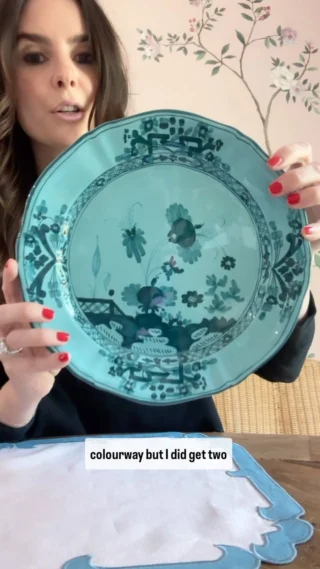I’ve been in therapy on and off throughout my adult life. In 2016, a year after giving birth to my son, I finally realized (or rather, admitted) that my anxiety was impacting my day-to-day life so significantly that I needed help. I saw a psychiatrist that specialized in postpartum women and was diagnosed with Generalized Anxiety Disorder (GAD). I was prescribed an SSRI, but opted to see psychologist in the same practice for CBT (Cognitive Behavioral Therapy), wanting to exhaust all other options before trying medication.
CBT with my therapist helped a bit, but I always felt like a failure. I could never focus on doing the work. Between being a mom, wife, working full-time, my blog and other commitments, I felt like I already had so much on my plate. One could argue that I could have prioritized the CBT over other things, but it’s easier said than done. CBT is a very intensive program from both an emotional and time commitment standpoint. I would try to read the book and do the worksheets and meditations, but I would get distracted, my mind would wander and I’d give up. At times, I actually experienced an increase in my anxiety because I felt like such a failure – before every therapy appointment I had that unmistakable anxious feeling in my chest, because I knew I wasn’t doing the work. CBT is a proven, science-backed method and can be even more successful/effective than medication- so why couldn’t I just focus and do it?
After about a year, I stopped doing CBT – I was about two chapters away from finishing the program. It feels disappointing to admit that, but it makes sense to me now, in hindsight. It did help me in some ways – particularly the talk therapy part of my appointments where I could unload my feelings.
My GAD never went away – it would just continually ebb and flow. When it was at its worst, I had a lot of intrusive thoughts about car accidents, freak accidents and something happening to my children health-wise. Over time, I started to have less of these thoughts, but my anxiety would often manifest in new or different ways.
Because I want to present a balanced picture of my life – every single day isn’t bad. I have good days. I feel joy. I still participate in activities that bring me joy or fulfillment (like this blog! exercise! family game night!) Anxiety has never been black and white for me – it simply is at all times part of my existence and it varies in its intensity and how it impacts my daily life.
At the start of the pandemic in March, I was managing and felt there would be an eventual return to normal life in a couple of months. I took on a lot of home and organizing projects and the kids were learning to play independently all day as we worked – things were OK. I liked working from home and while it was stressful managing having the kids home and distance learning, there were silver linings too.
Then, I hit a wall. I read an article recently titled “Your ‘Surge Capacity’ Is Depleted — It’s Why You Feel Awful,” by Tara Haelle, and it put into words everything I was feeling. I felt validated and understood – but also recognized I was not okay…at all.
I don’t remember what day I hit my breaking point. I don’t know what puzzle pieces fell into place to lead me to realize that I wasn’t going to be okay without intervention. I remembered that when I had seen my PCP for a full physical and bloodwork right before the pandemic, he had prescribed me an antidepressant (Wellbutrin) for my anxiety. When he prescribed it, I asked him “what if it doesn’t work?” and he said “what do you have to lose by trying?” At this point I was so desperate for relief, I dug the medication samples out of my purse and started taking them, knowing it could take several weeks for it to work.
My anxiety started to manifest in new ways during the pandemic. I no longer had as many invasive thoughts as I used to – I had no commute, our children were home with us all the time and we didn’t go anywhere so I felt “safe.” Still, I found myself having days where I was so irritable and triggered, I felt like I would explode over the tiniest things. All I could think on my hardest days was “I can’t go another day feeling like this…I need to do something…” then, I’d have a good day or two and thought maybe I was OK. Obviously the isolation and fear we collectively experience living through a global pandemic can challenge someone with even a hint of anxiety, but for someone with unmanaged, unmedicated anxiety like me, it broke me.
I’ve always been quite sensitive to my environment – I can’t go outside without sunglasses if it’s sunny, I’m always cold and am sensitive to loud, sudden noises. During the pandemic, my tolerance for loud, sudden or unexpected noises fell to zero. They would trigger such a strong physiological response in me that I’d spiral for hours. My chest would feel tight, my heart would race. I wished it away more times than I can count but it was totally out of my control (which was scary!) I’m totally OK with consistent noise, but when it’s quiet and there’s a sudden loud noise in my home, it sends me into a tailspin. Not only did it manifest physically in my body, but I had feelings of agitation, irritability and even rage when it would happen. Rationally, I told myself – everything is fine – the noise was startling but it’s over now, calm down, deep breaths. But I couldn’t come down from it. I would feel horrible for hours after it happened and it only got worse on my first week of Wellbutrin (sidenote: it’s totally normal to experience increased anxiety when starting a new antidepressant and I was aware of this risk).
As an aside, something that helped me tremendously through all of this was talking to some of my friends – kind, loving, successful and accomplished women and mothers. Many of them already take medication for anxiety and/or depression or were on the brink and considering it. It made me feel less alone to know that women I admire had sought or were seeking help – and it’s the same reason I’m writing this post today – because if you feel like this, know that so many women do too. Even the ones that look like they have it together. Even the ones with perfectly decorated homes and kids in matching outfits. Even the ones that workout everyday and make amazing, fresh meals for their family every night. Even the ones that make everything seem effortless or have a lot of help or really supportive partners.
I’ve always been an open book when it comes to mental health – but medication was always my biggest fear – even when I supported others who I knew were better people because of it. There’s an analogy that always resonated with me – that you wouldn’t deny insulin to someone with diabetes – why is it different when it comes to a chemical imbalance in the brain? If I’m being honest, it was never about the stigma for me. I don’t really care if someone judges me for taking medication. It was the side effects and fear over how they would affect my mind and body. It’s just one of many reasons I’m grateful to the women in my life who have shared positive stories of how medication has made a difference for them. The internet is full of people with horrible stories about XYZ medication – and those experiences are valid and deserve to be heard. But you find far less about the good experiences, which only served to strengthen my fear.
Though I had started to take the Wellbutrin prescribed by my PCP, I’m a big believer in seeing specialists. I searched for a psychiatrist and after identifying one I thought would be a good fit, I took his first available video visit.
Prior to the visit, I prepared a full page of bullet points about how I was feeling, what led me to want to see him, my health history, etc. That was one thing I could focus on – I was desperate for relief. I was a mess before the appointment – anxious for answers and to hear what he thought about my symptoms and what he thought would help.
I was immediately comfortable with him – he was kind, listened, asked good questions. Right off the bat, it was clear I have GAD – I had been diagnosed before and still met the criteria. But there was something else, too. Based on our conversation, he started to ask me about ADHD symptoms. Now, I’m not going to pretend this is something I hadn’t ever considered. My lack of focus and concentration was worse than ever before, but I’m also aware that it’s a diagnosis people throw around all the time. “Oh I’m so ADD!” You’ve heard that a million times right? Or someone saying they’re “so OCD!” because they like to fold their laundry a certain way. Please know I’m not judging the way people can be flippant about these diagnoses because I’ve done it myself in the past.
I always describe myself as someone who has 100 internet browser tabs open in my head at all times, jumping from one to the other all day. I always thought this was just my personality. I always prided myself on being an “excellent multitasker,” but if I’m being honest, I could barely finish any of the tasks. When I’d forget things, I’d tell myself it was “mom brain.” When I couldn’t finish anything unless I had a deadline, I told myself I “work best under pressure.” There are days where I feel so unproductive and unmotivated, I spiral and have even more anxious thoughts. Why wasn’t I motivated? Why couldn’t I concentrate/focus? Why did I have to go back to a task ten times to complete it instead of focusing my attention on it for the amount of time necessary?
It turns out, there are a whole lot of ADHD symptoms that I had no idea were associated with ADHD…and I had a lot of them. I was surprised…but also not really? If anything, I felt…relief? Like maybe I didn’t have to feel and live this way anymore?
My psychiatrist told me to stop taking Wellbutrin immediately (it’s actually not really meant to treat anxiety, but it works for some) and prescribed new medications. It can take several weeks to adjust to the anxiety medication, but I’m hopeful.
I always thought that “succumbing” to medication would make me feel like I’ve given up – like I’m at my “last resort” option – but I actually feel the opposite – that I’m NOT giving up on myself. By trying medication, I’m actually treating the issues instead of wishing them away. I’m unlocking the possibility for myself to NOT FEEL LIKE THIS.
I realize now that this was never a “me not trying hard enough” problem – it’s that I literally cannot help how the chemicals in my brain are. Many women are able to live happier, more fulfilled lives because they’re on medication. Many women are able to get out of bed and be a good mom, doctor, scientist, first responder, teacher or grocery store worker because they’re on medication. If you are one of the ones that can thrive without it – I’m so happy for you, truly, it is a gift I wish for every single day of my life.
It still feels unimaginable that I could ever feel differently than I do now. I’ve been told that one day I’ll wake up and feel like a “fog has lifted” and “feel like myself again” and I honestly can’t even fathom what that might feel like because I’ve been this way for so long.
A lot of the ADHD behaviors make sense to me now that I’ve had some time to reflect on how they’ve manifested themselves in my life, work, relationships and at home. I used to think people with ADHD were unable to succeed – but that couldn’t be further from the truth. A lot of people with ADHD are intelligent, productive, creative and successful. A lot of people learn to manage the symptoms and succeed despite them. When you’re anxious too, you’re so afraid of failure, that you often find the drive to succeed even when you’re falling apart trying to balance so many things and your brain has those 100 browser tabs open and you don’t even know which website you’re on or why. ADHD presents differently in different people. For example, I have extreme anxiety about being late for things and thus leave early and rely on calendar alerts, but I can’t focus enough to write something that would take me 30 minutes if I really concentrated and have to go back to it ten times to actually complete it. On the other hand, I can be hyper-focused when I’m doing something that really interests me or that I’m passionate about (like this blog – there are weeks where I can write a month’s worth of content in a few days).
There has been a lot of progress made in our generation and more people are sharing their stories to de-stigmatize mental health. But many of us are still led to believe that if only we exercise or read the right book or eat the right food or take the right supplements, all of our anxiety, depression and worries will just melt away. We are told to “stop worrying so much” or “just don’t be so anxious” or to “focus on something else” (not helpful, btw). There has not been a day in my life that I didn’t wish it wasn’t so hard for me. I look at people who seem carefree, relaxed and at peace and want that so badly. I sometimes imagine what a day in their life must look like when they don’t sweat the small stuff, aren’t easily triggered, are able to focus and stay on task and unwind at the end of the day. And then I wonder if maybe I can feel that way soon too?
Thank you to everyone who has reached out, shared your story and supported me. It means a lot to me and I’m committed to keeping you all updated about my personal journey and progress.
We are all living through a particularly challenging time right now. If you’re in a mental health crisis, there are free resources that can help. You can call the National Suicide Prevention Lifeline, 1-800-273-TALK (8255) or Live Online Chat. Trained crisis workers are available to talk 24 hours a day, 7 days a week. Your confidential and toll-free call goes to the nearest crisis center in the Lifeline national network. These centers provide crisis counseling and mental health referrals. More information can be found here.
SAMHSA Treatment Referral Helpline: 1-877-SAMHSA7 (1-877-726-4727) – Get general information on mental health and locate treatment services in your area. Speak to a live person, Monday through Friday from 8 a.m. to 8 p.m. EST.





Love this so much! Thanks for sharing!! ❤️
Thanks for sharing your experience and for being so vulnerable. I support you 100%. I believe there are so many people suffering in silence with their own mental health issues and your honestly may be the precipice by which they seek help for themselves or a loved one. Bless xo
Best Lisa
Thank you for sharing! Your story hits home because my oldest daughter was diagnosed with ADHD after we sent her to therapy to address what we and her PCP perceived as anxiety. The therapist actually felt she had ADHD and recommended a formal evaluation and testing through a specialty clinic at our pediatric hospital. She was diagnosed with dyslexia as well which is a blessing because we would have never know that without this evaluation. My daughter and husband were then asked to participate in a study looking at kids with ADHD and parents to evaluate the parent for ADHD and possible genetic links to ADHD. Lo and behold my husband was diagnosed with ADHD in his 40’s and it was life changing. It explained so many things he struggled with including learning issues. We now know ADHD can be genetic as well as the dyslexia. Both of them take stimulant medication and it has helped tremendously. Hang in there!
Thank you for taking the time to write this and share with us. So many things resonate with me especially the noise aspect. That’s me exactly. I need to read a lot of this again . It’s a lot to process. Thanks again
Thank you for sharing, I feel like I could have written this. ADHD runs in my husbands family and he has it, our son has it, FIL, husbands grandma…a clear line down the family tree. It is absolutely not a death sentence. My husband is extremely intelligent and successful in his career and attributes a lot of it to his ADHD, and my son is in the gifted program at school. I am so glad they took you off Wellbutrin which is known for making anxiety worse. We’ve had A LOT of trial and error with ADHD meds, but when you find the right one/combo that day of fog lifting and you feeling like yourself again will happen. Maybe even a better version of yourself. You’ve got this!
Thank you for sharing your story. When I was reading this I was literally nodding and saying “yes, this is me!” I too have decided after a very long time dealing with anxiety to get professional help and I am now more than happy ever open to medication. I hope your story reaches people struggling with this and I hope it encourages them to seek help.
Wish you the best of look with your new treatment!
I am a partner at a large firm in canada, and a young mom and i have had low does anti anxiety med and ativan for emergency nights for years. Never would have got where i am without it. My fear was that i would not feel like myself, but i feel more like myself ! this was four years ago, and i feel like for the most part my anxiety is behind me. Good luck and best wishes ! I think you are on the right track to feeling better.
I am so thankful it has worked for you. Thank you for sharing with me. Through sharing my own journey, I am discovering that many very successful, accomplished and awesome women I admire take medication and it makes me feel so much more validated and seen.
Thank you for sharing. I relate to so many things you’ve shared.
Wondering if the affect of loud noises is supposed to be related to anxiety or adhd? I have this issue big time and lately become unhinged (I also need sunglasses).
You know I’m not really sure – to me it feels more lie an anxiety response from a physiological perspective and also based on how I feel emotionally when it happens but I guess it’s different for everyone. I think anxiety and ADHD can play off of one another which makes it hard to manage when you struggle with both.
As always, thank you for being so open and honest about your struggles. Wishing you much happiness and healing.
thank you so much <3
I also suffer from anxiety and struggle with ADHD symptoms. In both instances, I was diagnosed as an adult. As a child my attention struggles were passed off as being a girl, rather than recognized as ADHD, as that was something hyper boys had. I think we are likely about the same age too! As an adult I have learned how to manage my symptoms of both through a combination of environmental, and behavioural changes, and medication when needed. I’m fortunate in that for anxiety when managing well I don’t need the meds, but know that they are there to bridge the period where I can’t until I’m stable enough to wean off again. I’m lucky that way. At the end of the day though, if your body isn’t making its own neurotransmitters, store bought are just fine! Long story short, you aren’t alone in this, and you are doing awesome!
I enjoyed reading this post and can really identify with the never-ending anxiety. I am much older than you but really appreciate your refreshing honesty. I was diagnosed with GAD 4years ago. I have had depression in the past but never the anxiety that I experience on a daily basis. Bright sunlight is a problem as well as being cold and loud noises. Can you tell me what medication you are currently on? I have tried so many in the last 4 years.
I appreciate your blog, you have a beautiful family and home.